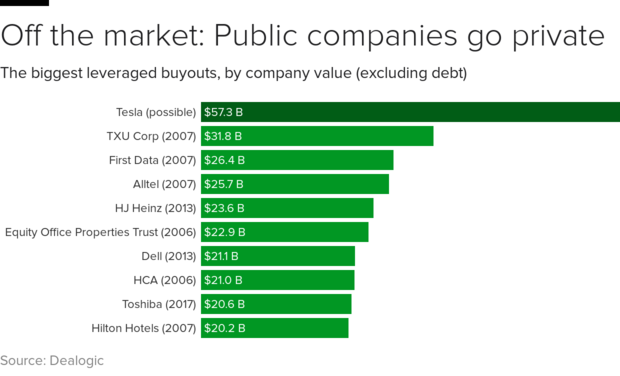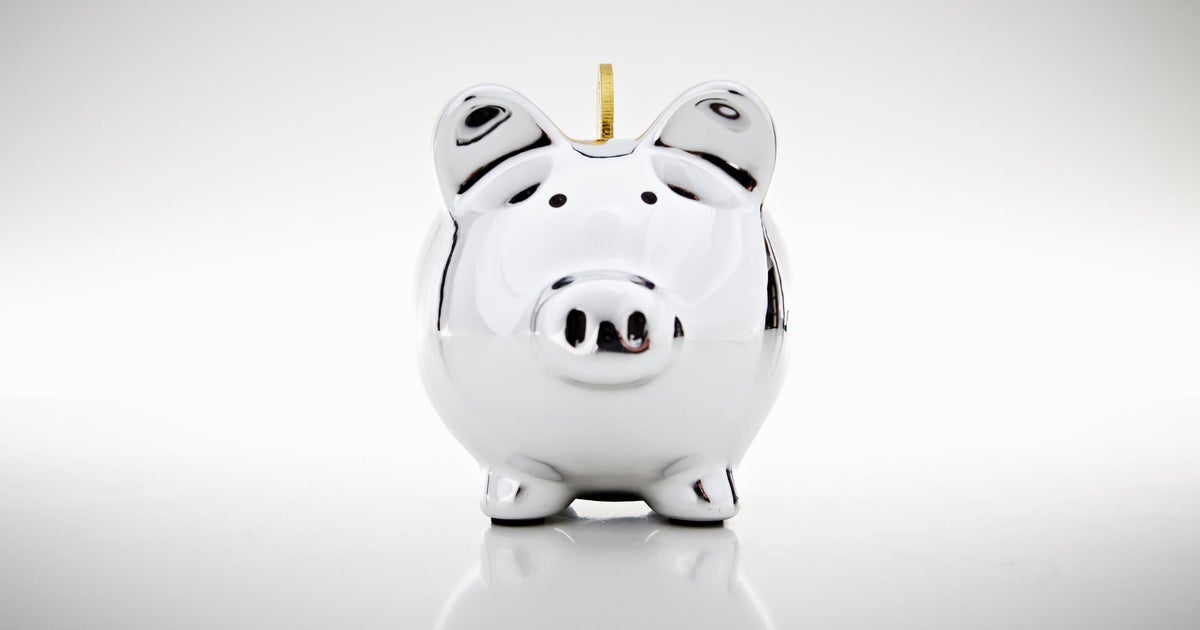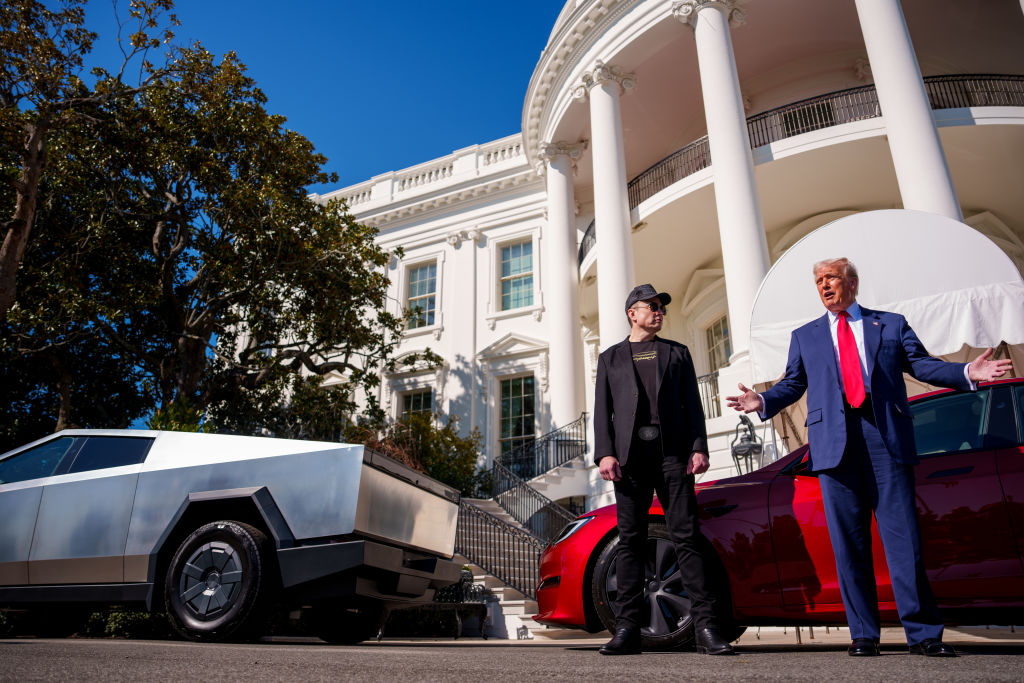Elon Musk could face rough road taking Tesla private
Tesla CEO Elon Musk stunned investors Tuesday by taking to Twitter to propose taking the electric car maker private in a deal that, at an estimated $70 billion, would be by far the largest such transaction of its kind. The main question now: Will he succeed?
The obstacles in his path are daunting. To pull off the audacious buyout, Musk needs deep-pocketed investors to trust him at a time Tesla continues to lose money. The automaker is also still gearing up production of its Model 3 car, which is key to Tesla's growth and profitability as it competes with established manufacturers to take electric vehicles mainstream.
Perhaps the biggest challenge -- winning over Wall Street. Tesla shares fell the day after Musk revealed his plan, suggesting that investors are skeptical that they would get their money's worth.
The plans' timing is "interesting given less than a week ago the company said it would be profitable" in the third quarter, UBS analyst Colin Langan, who rates Tesla shares a "sell," said in a note to investors. "This may be another way for Musk to change the conversation around the company; however, we note that the fundamentals have in no way changed."
Few pockets deep enough
Musk tweeted Tuesday that he has "funding secured" to finance the take-private deal, but didn't offer specifics. He owns roughly 20 percent of the company, which means Musk needs to raise about $70 billion to buy out existing stockholders at the $420 per share price he floated, according to analysts.
Shareholders could retain their stake in the current company, Musk later elaborated. There's a chance some holders would hang on to their stakes, requiring Tesla to round up less funding.
"The question then is, who would be willing to buy TSLA shares at $420, when the stock has never traded at such a level, and was trading ~$300 a week ago?" Bernstein analyst Toni Sacconaghi wrote. "Clearly someone who wants a majority (or very large) stake. That leaves only a few deep-pocketed possible investors."
Possible investors could include Softbank, Saudi Arabia's Public Investment Fund or China's Tenecent, Sacconaghi wrote.
Musk met with Softbank last year but talks fell apart, according to Bloomberg. Saudi Arabia's sovereign wealth fund took a 3 percent to 5 percent stake right before Musk's initial tweet, according to the Financial Times. And China's Tenecent already owns a 4.9 percent stake in Tesla.
When a company goes private, it typically means paying off investors so publicly-traded shares are removed from equity markets. Once a company goes private, shareholders can no longer exchange stock in public markets. To do that, Tesla needs shareholder and board approval. And, of course, the funds.
Tesla's board said it is evaluating the proposal.
Meanwhile, even if Tesla can line up financing, some investors might want more than the $420 a share Musk stipulated as the buyout price.
A complex deal structure
Musk mentioned a so-called special purpose entity as one way shareholders could hold on to their stakes in Tesla. But's unclear exactly how that would work.
Creating such an entity that's accessible to all shareholders would be unprecedented, the Wall Street Journal reported, citing lawyers. The company would need to file a registration statement with regulators.
A private company can issue stock to an unlimited number of sophisticated investors without going through the registration process, according to Bloomberg.
Another possibility could be for Tesla to issue convertible debt akin to the stakes in General Electric and Goldman Sachs that Warren Buffett's Berkshire Hathaway took during the financial crisis a decade ago. But "it would likely have to be at an attractive conversion price," Bernstein's Sacconaghi wrote.




